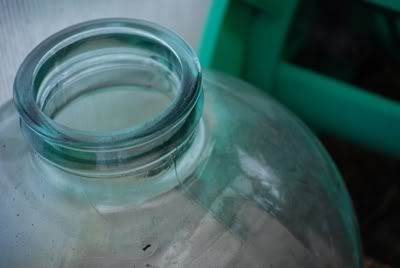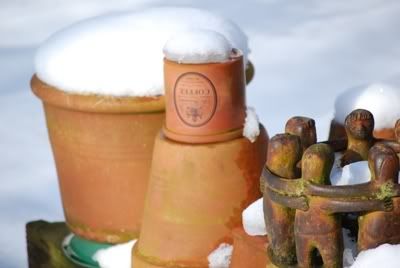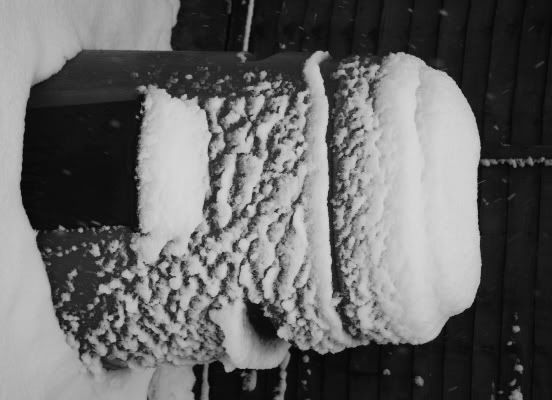When you get down to it, this is an article about cleaning. Bear with me for a moment.
Before we get to the real point of the article, a story springs to mind. A few years back, I was visiting one of Beijing's universities. North-west Beijing has more universities than you could ever imagine, and many of them are the nation's very best. It's like having Oxbridge, Harvard, and Yale all next to each other, on one another's doorsteps. It's a truly awesome sight, particularly given the vast scale of large Chinese universities, where each is more like a small town than a campus.
Before we get to the real point of the article, a story springs to mind. A few years back, I was visiting one of Beijing's universities. North-west Beijing has more universities than you could ever imagine, and many of them are the nation's very best. It's like having Oxbridge, Harvard, and Yale all next to each other, on one another's doorsteps. It's a truly awesome sight, particularly given the vast scale of large Chinese universities, where each is more like a small town than a campus.
One day, I found myself having tea with an elderly professor in his office. His English was much better than my Chinese (which isn't too hard to achieve), and we got on well because of our shared love of tea. I liked him especially because he uses precisely the same Hengfu tea-table as we do at home. He insisted on calling me "tea professor", which I took with a huge pinch of salt, given (i) I'm a yangguizi [foreigner, lit. foreign ghost!], and also far too young to be a proper professor, (ii) his encyclopaedical knowledge of tea, and (iii) the tendency for Chinese to flatter their guests like no other race on earth without justification. Despite the entirely undeserved flattery, we had some good tea.
The one thing that struck me about his brewing was that he didn't clean up. Anything, at all. The pot looked so grim it must have been used daily for years. No sultry shine, no lovely luster, no perfect patina. Just grimness and stains. I wanted to reach over and give it a rub with my sleeve, but stopped myself. The words of the drug dealer from Pulp Fiction came to mind: "You don't mess with another man's car. You just don't do it."
Like most Chinese I've met, he didn't bother using a hulu [filter] - he just inverted the teapot and let it rest in the gongdaobei [fairness cup / pitcher]. The gongdaobei was made of glass, and was approximately as grim as the teapot. The last time that glass was clean was when it was bought.
The one thing that struck me about his brewing was that he didn't clean up. Anything, at all. The pot looked so grim it must have been used daily for years. No sultry shine, no lovely luster, no perfect patina. Just grimness and stains. I wanted to reach over and give it a rub with my sleeve, but stopped myself. The words of the drug dealer from Pulp Fiction came to mind: "You don't mess with another man's car. You just don't do it."
Like most Chinese I've met, he didn't bother using a hulu [filter] - he just inverted the teapot and let it rest in the gongdaobei [fairness cup / pitcher]. The gongdaobei was made of glass, and was approximately as grim as the teapot. The last time that glass was clean was when it was bought.
The tea was, of course, very good and entirely unaffected by the grimness of the vessels.
This is something that continued through my various tea experiences in China. Though some vendors made an effort to at least wash out their gaiwan once in a while, the majority were quite slap-dash about cleaning.
This is odd, because the Chinese are typically quite fastidious about cleanliness, in their own way. Certainly, most of the sanity facilities look as if they are about to grow new forms of interesting sentient fungi previously unknown to man, but this is a race of people for whom collecting piles of clean slippers at the door to give to one's guests is the norm, so as not to bring in dust from the outside world. Eating vessels are usually meticulously scrubbed. Trying to dip your own chopsticks into a communal dish is liable to result in a stern look at best, or a justified Wudang-style chop to the throat at worst.
It just doesn't extend to teapots.
This is something that continued through my various tea experiences in China. Though some vendors made an effort to at least wash out their gaiwan once in a while, the majority were quite slap-dash about cleaning.
This is odd, because the Chinese are typically quite fastidious about cleanliness, in their own way. Certainly, most of the sanity facilities look as if they are about to grow new forms of interesting sentient fungi previously unknown to man, but this is a race of people for whom collecting piles of clean slippers at the door to give to one's guests is the norm, so as not to bring in dust from the outside world. Eating vessels are usually meticulously scrubbed. Trying to dip your own chopsticks into a communal dish is liable to result in a stern look at best, or a justified Wudang-style chop to the throat at worst.
It just doesn't extend to teapots.
Back home, I consider the tidying up after a tea session to be an integral part of the proceedings. The show isn't over until the calorifically-resplendent matriarch sings, and the tea session isn't over until the pot has been wiped (gently, while warm and damp), the gongdaobei has been buffed to a gleaming shine, and the tea-leaves packed off to the compost heap (pictured below).
It somehow doesn't feel right, somehow feels disrespectful, to leave everything smeared and dirty. Besides the slightly obsessive-compulsive overtones of my desire to clean my tea-gear, it makes for good sense: if you leave your tea-table wet, without adequately wiping it down and removing water from the drip-tray, it will rot within months. With a good rub and clean after each session, our chapan [wooden tea tray] looks almost as good as the day it was new, and it's quite a few years old now, and has consequently seen a lot of action.
Similarly, if you don't clean your tea-brush, heaven knows what manner of unspeakable evil might be lurking within those dark bristles, waiting to be introduced to your lovely teaware in future.
It doesn't take long to perform an adequate clean, perhaps a few minutes at most, and everything is a joy to behold and ready for the next use, as well as being potentially extended in lifespan.
It somehow doesn't feel right, somehow feels disrespectful, to leave everything smeared and dirty. Besides the slightly obsessive-compulsive overtones of my desire to clean my tea-gear, it makes for good sense: if you leave your tea-table wet, without adequately wiping it down and removing water from the drip-tray, it will rot within months. With a good rub and clean after each session, our chapan [wooden tea tray] looks almost as good as the day it was new, and it's quite a few years old now, and has consequently seen a lot of action.
Similarly, if you don't clean your tea-brush, heaven knows what manner of unspeakable evil might be lurking within those dark bristles, waiting to be introduced to your lovely teaware in future.
It doesn't take long to perform an adequate clean, perhaps a few minutes at most, and everything is a joy to behold and ready for the next use, as well as being potentially extended in lifespan.
I'm also quite keen on cleaning our tea equipment from a Buddhist point-of-view. It doesn't do to leave your equipment in a filthy state when you're hoping to achieve an atmosphere conducive to relaxation and mindfulness, and there are a number of surprisingly lengthy passages in various Buddhist writings about the benefits of a good old-fashioned clean. "Cleanliness is next to Godliness", so the old saying has it.
I look at the typical character of the Chinese (of which forms half my family, these days) and Japanese (of which I am familiar from my studies), and cannot surpress the thought that the national characteristics are evident even in this smallest aspect of the tea ritual: the Japanese is clean, orderly, perfected centuries past and brought to life with each enaction, while the Chinese is, well... rather like the charming old professor with whom I started the article. Endearingly chaotic.
I look at the typical character of the Chinese (of which forms half my family, these days) and Japanese (of which I am familiar from my studies), and cannot surpress the thought that the national characteristics are evident even in this smallest aspect of the tea ritual: the Japanese is clean, orderly, perfected centuries past and brought to life with each enaction, while the Chinese is, well... rather like the charming old professor with whom I started the article. Endearingly chaotic.






14 comments:
See? I knew it all along.
I'm not a slob. I'm endearingly chaotic.
This may only be true for charming old Chinese profs!
Have you gotten yelled at for not using serving chopsticks in communal dishes with family or close friends? When eating with my girlfriend's family (including large groups of extended family in China) or Chinese friends, both at home and at restaurants, serving chopsticks are almost never used (and people don't usually flip their chopsticks around to serve themselves either). If they are used, they're only as a concession to my vegetarianism, or because they're eating shellfish (which I'm really allergic to). I usually try to discourage it because I don't want to be a bother. In any event, I don't doubt that some people use them, but I haven't experienced the behavior you describe yet.
In any event, I think you definitely need to own your OCD, rather than try to rationalize it. I have my own OCD tendencies at times, and usually keep my teaware pretty clean and well polished, but I think you could make equally cogent (religious) arguments for the opposite approach...
While I'm sure there are a lot of exceptions on both sides, it seems to me like Taiwanese are a little more neat / tidy than folks from mainland China / HK, especially about polishing pots. Maybe the Japanese influence.
I think some actually prefer the look of a pot that's not overly clean / polished looking, and also believe that leaving wet leaves in the pot for days at a time can help season the pot. I have one friend who sort of takes this approach, though she's always happy when I show up at her shop, because she knows I'll polish every pot in sight.
I will say that the tea vendors I've been to in China (outwardly, at least) almost all appeared to be pretty careful about cleaning -- actually more so than I expected.
As an extra bonus (somewhat related to the subject of cleanliness), I give you.... my girlfriend's work teaware:
http://farm4.static.flickr.com/3400/3219763636_aafcd1b344.jpg
Dear Will,
Actually, you're right - we do use our own chopsticks to get food, but I typically aim to get most of it at the start. It's frowned on (for obvious reasons!) to dip your chopsticks covered in bodily grossness into a communal pot. :)
I'm sure practices vary!
Ah, the joys of Obsessive-Compulsive Disorders. I don't know if being extremely clean and orderly is OCD, but if it is, I have it, and my wife has it! There's something about scientists and technologists that can tend towards the orderly. I don't know if that's a good thing or not...
I laughed when I saw your photograph of your wife's teaware... In fact, after just stating that my wife is clean and tidy, her office teaware looks very similar to your wife's! I will bring this up when I get home... :)
Toodlepip,
Hobbes
I am not clean and tidy, not by a longshot. But I have to say that I have a stronger compulsion to clean my teaware than I do, say, other dishes or even to keep my lodgings tidy.
I guess, for me, cleaning the teaware is as much of the ritual of tea as its preparation.
Hear, hear!
To Hobbes
I usually remove the leaves, rinse the pot in water, then rinse it with boilong water and gently wipe off the pot with a cloth. I suspect that I shouldn't wipe the inside of the pot, and I'm not really sure how more experienced pu'er drinkers are in fact using the brush they all seem to mention. I'm quite worried that my pots will become unclean...
Simple, but sound instructions needed!
Terje
ps. sorry to post this on an old thread, but it seems the most appropriate place.
Dear Terje,
I rather like revisiting old posts, so please don't worry!
I must admit that, despite being obsessed with cleanliness, I only rinse out my pots with cold water - just to get the leaves out.
It's probably best not to wipe the inside of the pot, because you want to build up a good patina there, and also don't want to leave any fibres from the cloth behind.
The brush that we mention is used simply to stop water from collecting in one particular place on the outside of the pot. For example, the water tends to collect around the lid on my favourite pot. If not wiped away, it would leave to a concentration of deposits in that location. The brush is used to thin out the puddles of water, spreading them out over the surface of the teapot, to prevent build-ups in any one location, and to encourage a more even patina over the entire outside skin of the pot.
Toodlepip,
Hobbes
Great!Thanks for the help!
I don't care much about "the correct way" to brew tea - I jsut drink!!! But I have this thing about cleanliness, and can't get my mind of what might be living in my teapots. At least I'm not doing anything wrong.
A friend surprised me with a chunk of 1994 Menghai 7542 sheng'pu - there's a 10 gr bag on my shelf with your name on it. I'll send it to you along with some 2009 Menghai samples of cakes a friend from Hong Kong is bringing back with him at the end of next month.
Best wishes
Terje
Superb, thanks! I like your friends!
I've admired your tea table since I first saw it and was wondering what kind of wood it's made of? I have a bamboo table but was thinking of upgrading to something nicer - any tips on this or on maintaining a table? Is there any point in buying an expensive table?
Best wishes!
Terje
Dear Terje,
A good table need not be expensive - ours was £30 or so, from a shop in Chengdu. You can get very similar tables, for not much more money, at places like Dragon Teahouse. Ours is "HENGFU" brand, and has lasted many years.
No special steps are required, apart from wiping it down properly after each session. Don't let the water sit on it overnight, and empty the tray after each session. Simple precautions such as that will give you many years of use - even now, our table still looks almost new.
Of course, cleaning up properly is all part of the spirit of gongfucha, I believe. It would be disrespectful to leave one's equipment in a state of disrepair overnight.
Best wishes,
David
"calorifically-resplendent matriarch" - *laughs*
Upon reading your accounts, I wonder if maybe I'm a little too obsessive with cleaning my teaware. I'll normally use almost-boiling water, and give everything a good rinse multiple times - especially the cups and gaiwan. The leaves are taken care of immediately, and everything is wiped down and put back in fairly precise order. It's become such a ritual that I actually got a little antsy when another person was 'cleaning' my teaware - and I stopped them to finish it myself.
"Cleanliness is next to Godliness", is it not? I sympathise with the desire to have everything clean. Excessively clean. I think that there may be a par tof me that's rather like Jack Nicholson's character in the film "As Good As It Gets". I can see myself with stacks of soap-bars, in future...
Toodlepip,
Hobbes
Post a Comment